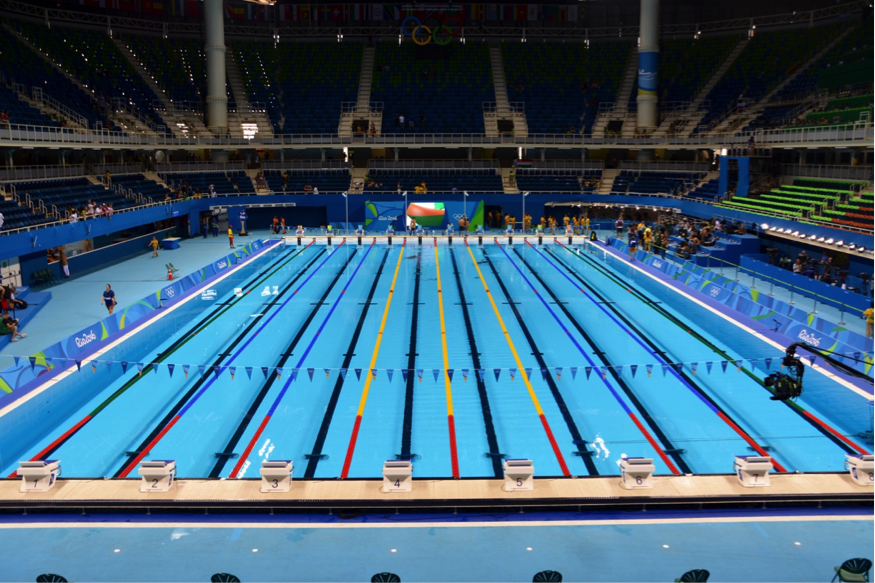BRA-ZIL! BRA-ZIL! BRA-ZIL! I looked outside my hotel room window and saw a sea of people jumping and screaming to the tune of Seven Nation Army. The beach volleyball stadium was just beneath us and you could hear the chanting and cheers through the glass. I arrived in Rio for the Olympics that morning and already had a great story for home.
Covered in TeamUSA gear, we caught the opening ceremony, basketball, swimming, and beach volleyball, then checked out a few non-Olympic city sites. The experiences and stories I’ve accumulated have left me in turn speechless, choked up, and ecstatic. But as I continue to tell my personal stories, I notice that the Rio games are doing a masterful job of telling their broader story as well.
Here are three storytelling takeaways from Rio de Janeiro.
1. Less is more
Compared to London’s 42-million-dollar performance featuring Paul McCartney, David Beckham, James Bond, and a Queen parachuting from a helicopter, the Rio Olympics used just 10% of London’s budget for their own unique and memorable opening ceremony. They saved 90% of that money and never missed an opportunity to make the show better. We saw Giselle walk across the stadium, a city being built before our eyes, and a sea of people dancing and displaying love for the country.
Rio didn’t have the resources that London did, but they had a story, a purpose, and an audience. Brazilians wanted to celebrate their country and the games; they did, and at a fraction of London’s cost.
Their opening ceremony was breathtaking and no one in Maracanã Stadium, athlete or spectator, will forget the impressive performance that Rio produced. You don’t need to be extravagant while focusing on your brand’s unique and personal story.
2. Don’t over-advertise
One aspect of the Olympics that we can’t escape is sponsorship and advertising. When watching the games on TV there seems to be endless and constant streams of ads thrust upon viewers. However, experiencing the games live provided an entirely different narrative.
While companies overload their brands on TV, they seem to respect the actual stadiums. I was pleasantly surprised that brands cut back their logos inside the stadiums. They respected the games and kept the Olympic spirit relatively pure.
In this way, I realized that Brazil was making a statement. People attend the Olympic Games to watch Michael Phelps swim, not an advertisement. The focus should be on watching the athletes compete on the biggest stage in sports and nothing else. No distractions. While marketing you try to deliver an experience for your customers. Focus on what they want and don’t over-advertise your brand.

3. Be authentic
When you’re telling a story, the details matter. By the time I got back, everyone already knew the results of the various events I saw. But talking about the experience of seeing a Spanish swimmer disqualified for jumping early, witnessing him come back and compete only to then earn last place in his heat has a drama that most people didn’t witness on TV. Being in the arena as he left crying in despair then watching him return to a standing ovation, crying with joy and feeling a world of support is something I won’t soon forget. This authentic, genuine feel is what makes the games worth watching and what your brand should spark when communicating its own story. Find the emotional details someone might otherwise miss and highlight them.
People watch the Olympics from all over the world. It gathers the largest audiences and is a perfect platform for a company to share its brand and story. However, just as the Olympics do, you must utilize these storytelling essentials with your own brand to truly connect with your audience.
By Nick Sear
